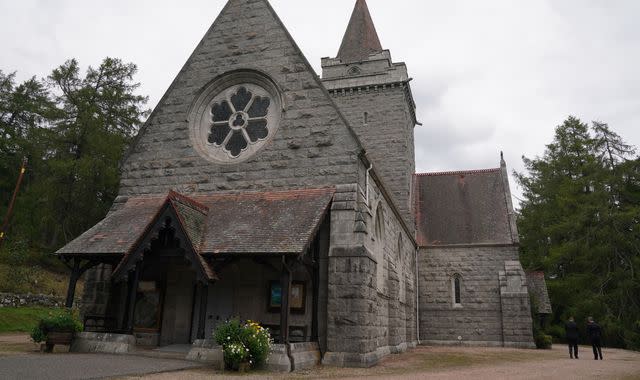Scotland Census 2022: Majority of people have 'no religion'

For the first time in the history of Scotland's census a majority of people have said they have "no religion".
A total of 51.1% responded "no religion" in Scotland's Census 2022 - up from 36.7% in 2011, according to a new report released by the National Records of Scotland (NRS).
NRS said "no religion" was the most common response in almost every council area across the country, except in Na h-Eileanan Siar (Western Isles) and Inverclyde.
In the Western Isles, "Church of Scotland" (35.3%) was the most common response, but no religion increased from 11.4% in 2001 to 29.9% in 2022.
In Inverclyde, "Roman Catholic" (33.4%) was the most common response.
The "Church of Scotland" remains the largest religious group, but its numbers have continued to drop - from 42.4% in 2001 and 32.4% in 2011 to just 20.4% in the latest census.
The next largest religious groups were "Roman Catholic" (13.3%), "Other Christian" (5.1%) and "Muslim" (2.2%).
The number of people who described themselves as "Roman Catholic" decreased by 117,700 since 2011, while the number in the "Other Christian" category decreased by 12,000.
The number of people who described themselves as "Muslim" increased by 43,100 over the same period.
NRS said census data from England and Wales shows a "similar trend to Scotland".
Census data from Northern Ireland shows an increase from 13.9% in 2001 ("no religion" and "no response" combined) to 17.4% in 2021 ("no religion" only).
The percentage of people in Scotland with a minority ethnic background increased from 8.2% in the previous census to 12.9% in 2022. This is a larger increase than over the previous decade (from 4.5% to 8.2%).
The percentage of people who said Scottish was their only national identity increased from 62.4% to 65.5%.
The percentage who said their only national identity was British also increased from 8.4% to 13.9%.
The percentage who said they felt both Scottish and British decreased from 18.3% to 8.2%.
The census also found that 2.5% of people aged three and over had some skills in Gaelic in 2022. This is an increase of 43,100 people since 2011 when 1.7% had some skills in the language.
In the Western Isles, the majority of people had some Gaelic skills (57.2%). This was far higher than the next highest council areas, Highland (8.1%) and Argyll and Bute (6.2%).
The percentage of people with some skills in Scots also increased, from 37.7% in 2011 to 46.2% in 2022.
A total of 2.2% of people aged three and over can use British Sign Language (BSL). This was a new question for the 2022 census.
Read more from Sky News:
Elvis Presley's granddaughter fights auction of Graceland
One dead and multiple injured after severe turbulence on flight
The report's results are part of a wide range of statistics on ethnic group, national identity, language and religion from the 2022 census, with key themes including migration and Scotland's ageing population.
A further six reports on different topics from the census are due to be released over the next few months.
Jon Wroth-Smith, director of census statistics, said: "These statistics give a fascinating insight into religion, ethnicity, national identity and language use across Scotland and how they have changed over the years.
"It is exciting to publish the first of the topic releases and this, along with our other census data to come, will help local and central government, businesses and charities to plan services in the years ahead."
Deputy First Minister Kate Forbes, who is also cabinet secretary for economy and Gaelic, welcomed the 50% increase in the number of people possessing some Gaelic skills.
She described it as "another important step in securing the future of the language".
Ms Forbes added: "The forthcoming Scottish Languages Bill will build on this progress, along with continued Scottish government funding for Gaelic arts, education, broadcasting and community initiatives.
"My appointment as Scotland's first cabinet secretary for Gaelic is a further sign of this government's determination to preserve Gaelic as a vital part of our culture."


